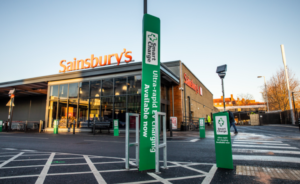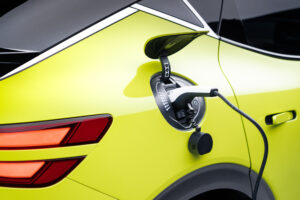Brighton and Hove moots ‘car-free’ city by 2023
Brighton and Hove city councillors will discuss the possibility of the city becoming ‘car-free’ by 2023.
There are no firm details of how this would work in practice, but members of the environment, transport and sustainability committee have requested a report that explores the feasibility, costs and possible exceptions of developing a plan of action.
Brighton and Hove City Council’s annual Air Quality Status Report shows that air quality in the city has improved overall in the last year, particularly in the Valley Gardens area and down the Lewes Road Corridor.
A report published by the council last year found that nitrogen dioxide (NO2) caused by road transport emissions remains the biggest contributor to Brighton’s poor air quality, and it was the only pollutant the council did not meet legal limits for in 2018.
The ‘car-free’ city idea is a trend that is beginning to gain traction across the country. In December, York council announced they were looking into a car-ban for all private cars in the city centre by 2023. Last month, Newcastle City Council announced plans to make part of its city centre a car-free zone.
The report will be presented to the committee in October 2020.
Chair of the environment, transport and sustainability committee, Anne Pissaridou said: ‘We were elected on a manifesto pledge to make our city carbon neutral by 2030. We have declared a climate emergency and are making progress on decarbonisation.
‘But, we must take major steps to reach our ambitious target, so we are proud to work cross-party and champion a car-free city centre.
‘Crucially though, this will be for the climate assembly to decide how we combat the climate crisis.’
Green Cllr, Amy Heley said: ‘I promised this motion because I’ve been inspired by European cities such as Ghent and Oslo, who have demonstrated that a car-free city centre can be beneficial for all.
‘Having a greater understanding of city-centre traffic is a realistic response to the emergency of the climate crisis.
‘It offers an opportunity to deal with congestion, road safety and dangerous levels of air pollution. This report will help the city to understand what the proposals emerging from other UK cities could mean for Brighton and Hove.’
In related news, last week (January 30), Manchester City Council announced that they will consider bringing in an Ultra-Low Emission Zone (ULEZ) that charges owners of polluting vehicles, including cars, to drive in Manchester city centre.
Councillors passed a motion to look into how the zone could work in practice, whilst also investigating the potential for cutting the amount of through traffic that drives on Manchester’s Inner Ring Road.
Photo Credit – Pixabay

















